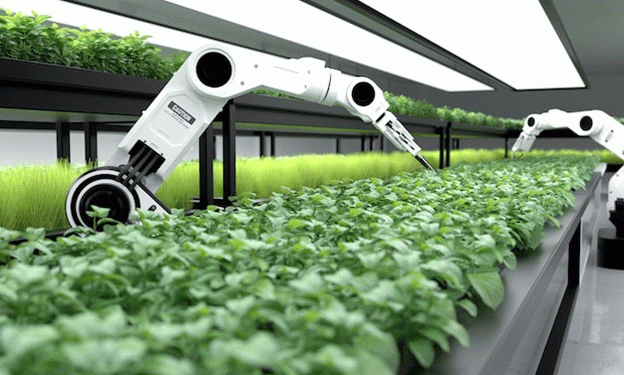iFarm, a once-promising agritech startup, has made headlines for its ambitious vision to revolutionize urban agriculture with smart vertical farms. Founded in Novosibirsk and registered in the United States, the company gained traction by introducing AI-powered farming solutions that allowed for year-round cultivation of fresh greens, strawberries, and vegetables in urban environments. Backed by millions in venture capital, iFarm was poised for success. However, as of late 2023, the company and its affiliates are on the brink of bankruptcy.
The crisis centers around three companies affiliated with iFarm: Gorodskie Teplitzy, Gorodskie Teplitzy Moskva, and Vertical Farms. All of these companies were founded by iFarm’s original creator, Alexander Lyskowski, who aimed to establish a network of smart vertical farms throughout Russia. Despite initial success, the businesses have faced significant financial difficulties.
The Rise of iFarm: A Vision for Urban Agriculture
iFarm’s promise was rooted in the idea of intelligent urban farming. With AI systems controlling various aspects of farm management, including lighting, temperature, and watering, the farms were designed to provide ultra-fresh produce with minimal human intervention. The technology allowed for the cultivation of crops in any season, irrespective of the external climate.
iFarm quickly attracted attention and investment. In 2019, the company received $1 million from the venture fund Gagarin Capital, followed by another $4 million in 2020. The influx of capital allowed iFarm to establish a presence in key Russian cities, including Novosibirsk, Krasnoyarsk, Irkutsk, Moscow, St. Petersburg, and Miass. In addition, the company began construction on additional farms in cities like Blagoveshchensk, Kazan, and Chelyabinsk.
However, the company’s early promise began to erode due to unforeseen challenges.
External Factors and Rising Costs
Several external factors have contributed to the downfall of iFarm’s Russian operations. In 2023, iFarm’s American investor pulled out, transferring ownership of its assets to Lyskowski. This marked a critical turning point, with the company’s cumulative losses exceeding 50 million rubles by the end of the year.
Lyskowski himself cited several reasons for the collapse, including rising energy costs in Europe, which led to the closure of some of the company’s European farms. Additionally, the global venture capital landscape was severely impacted by what he described as a “venture winter,” compounded by the economic challenges arising from the COVID-19 pandemic and geopolitical tensions. These factors discouraged further investment in vertical farming, a technology that, despite its promise, has not yet been proven to be economically viable on a large scale in the current market environment.
Despite these challenges, iFarm’s international operations remain intact. However, the Russian companies associated with iFarm are the ones shutting down, reflecting the broader struggles in Russia’s agritech sector.
The Future of Vertical Farming: What Can Be Learned?
The fall of iFarm serves as a cautionary tale for those investing in or planning to develop vertical farming technologies. While the idea of growing food efficiently in urban environments using AI and automated systems remains appealing, it has yet to reach widespread economic viability. Factors such as high initial investment costs, reliance on expensive energy, and the unpredictability of external events (like global economic downturns and geopolitical instability) can quickly turn a promising venture into a financial disaster.
That said, the technology behind vertical farming is still evolving, and there are international examples of success in controlled environments where energy costs are lower or sustainable practices are incorporated. The potential for urban farming remains high, particularly as cities grow and the demand for local, fresh produce increases. However, investors and entrepreneurs must consider the high risks and long timelines before embarking on similar ventures.
While iFarm’s bankruptcy marks the end of an era for the Russian vertical farming startup, it also provides valuable lessons for the agricultural tech industry. Vertical farming offers an innovative solution to urban food production, but it is not immune to the broader economic forces that impact all industries. Moving forward, the focus will need to be on creating more sustainable and cost-effective models, especially in terms of energy use and financial planning, if the sector is to thrive.












